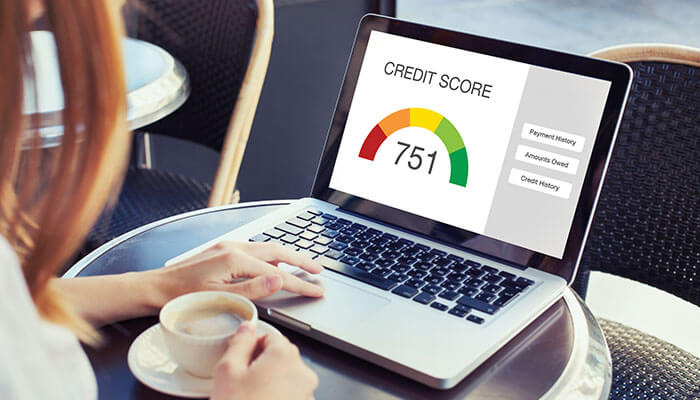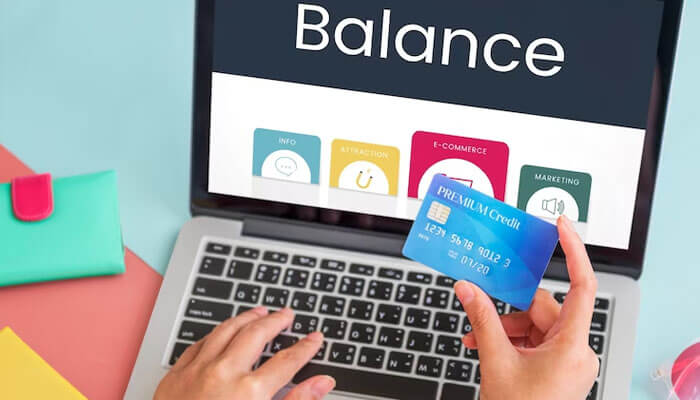Your credit score is one of the most critical numbers in your life. It can affect everything from the interest rate you pay on a car loan to whether or not you can get a mortgage. If your credit score has taken a hit recently, don’t worry – there are steps you can take to improve it.
If you want to improve your credit score, start the process, or deal with credit card debt, consider this your saving grace. We’ve compiled 7 tips to help you get your credit score back on track, so you can save money and maximize the potential of your financial future.
How To Improve Your Credit Score
Did you know that an average of 35% of your credit score is determined by payment history? Thus, making timely payments is a great way to improve your credit score.
If you are struggling to make ends meet or are behind on your payments, consider setting up a payment plan with your creditors. This will help you stay on top of payments and ensure that your credit score remains in good standing.
Although credit card debt is the most common type of debt, other forms of borrowing can also affect your credit score. Therefore, it is essential to talk to a Credit Card Debt Relief Attorney to determine how any debt can impact your credit score.
Another good way to improve your credit score is by keeping the balance on your credit cards low. Credit utilization, which measures how much of your available line of credit you are using, makes up 30% of your credit score.
When it comes to improving a low credit score, patience is key. Building up a good payment history takes time and effort, so the sooner you take action steps to do so, the better chance you have of improving your score in the long run.
Look for opportunities to improve other aspects of your financial life that can influence your credit reports, such as checking accounts or utility bills. Maintaining these accounts in good standing can help improve your overall credit score. You might also wonder how your credit affects other financial opportunities. For example, do you need good credit to open a checking account in the first place? While credit plays a role in many financial decisions, the requirements for opening a checking account can vary. Understanding these details can help you take control of your finances and steadily improve your credit over time.
Here are some proven tips worth considering:
1. Check Your Credit Report
The first step to improving your credit is knowing what’s already in it. Request a free copy of your credit report from all three major bureaus – Experian, Transunion, and Equifax – to check for any errors or discrepancies that could damage your credit score.
If there are errors that need correcting, contact the bureau to dispute them and get them removed from your report.
2. Pay Your Bills On Time
Paying bills late is one of the quickest ways to hurt your credit score, so make sure you pay all bills on time or even early. If you can’t pay all of your bills on time, try setting up auto-payments or reminders to ensure that you never miss a payment.
For instance, if you’re struggling to pay your credit card bills, consider getting a loan specifically designed to help with that purpose. It may sound counter-intuitive to take on additional debt.
Still, a personal loan with lower interest rates can help you pay off your higher-interest credit cards and improve your financial situation quickly.
3. Keep Credit Card Balances Low
Credit utilization, which measures how much of your available line of credit you are using, can make up 30% of your credit score. Keep your balance below 30% and pay it off each month.
Furthermore, if you have multiple credit cards, consider transferring the balance of your higher interest-rate card to a lower-rate one. This will help you save money and improve your credit score over time.
4. Don’t Open Too Many New Credit Cards At Once
Lenders consider opening too many new accounts in a short period a risk and negatively affect your credit score. Generally, it’s best not to apply for more than two cards within 6 months.
This gives you time to learn how to use and manage your credit while also setting yourself up for success with lenders in the future.
5. Consider A Secured Credit Card
If you’re having trouble finding a regular credit card, consider applying for a secured credit card. Secured cards are designed for people with bad or no credit who want to build their score over time.
Although it requires a cash deposit, the secured credit card is a good way to establish yourself with lenders and improve your credit score.
6. Monitor Your Credit Score Regularly
Keeping tabs on your credit score can help you spot potential problems early and take steps to correct them before they become worse. Several websites offer free access to your FICO score, so take advantage of them.
7. Discuss Your Options With A Credit Counselor
If all else fails, talking to a credit counselor may be the best way to get back on track with your finances and improve your credit score. They will provide personalized advice based on your situation and help you create a plan to get back on track.
Final Words
Improving your credit score takes time, so be patient and stay consistent with the abovementioned steps. With time and effort, you can build up a good payment history that will ultimately increase your credit score.



